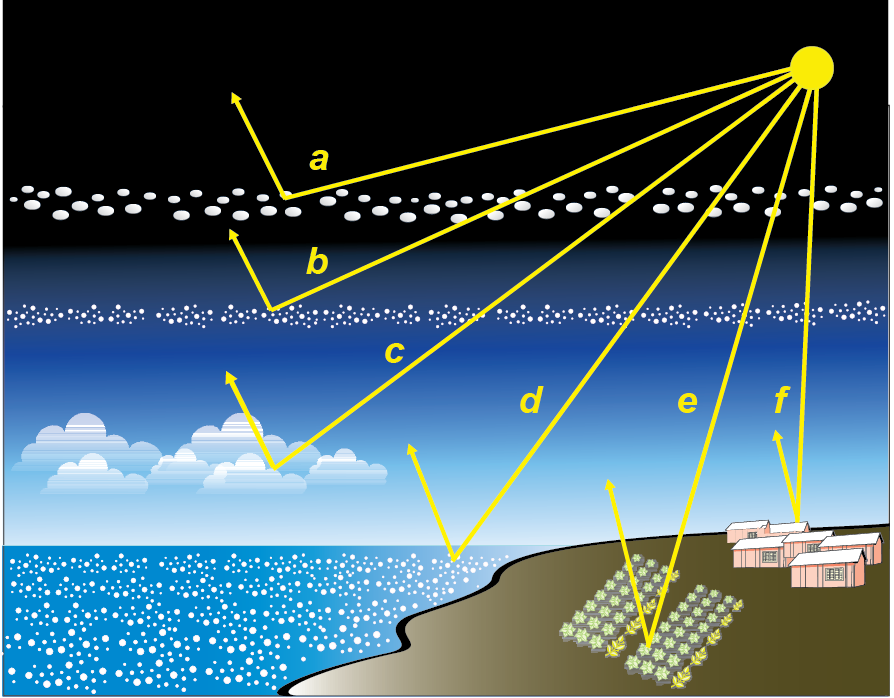Scientists from Indian Institute of Science (IISc) have been chosen as one of 15 new teams to receive a research grant from the prestigious Degrees Modelling Fund (DMF). DMF grants support scientists in developing countries and emerging economies as they explore whether a controversial proposal to reflect sunlight from the Earth could reduce the regional impacts of climate change.

Schematic diagram illustrating some of the proposed solar radiation modification (SRM) approaches: a) space reflectors, b) injection of aerosols into the stratosphere, c) brightening of marine clouds, d) more reflective ocean surface, e) bioengineering of crops to reflect more sunlight, and f) whitening of urban roofs and other built structures (adopted from Caldeira, K., Bala, G., & Cao, L. (2013). The Science of Geoengineering. Annual Review of Earth and Planetary Sciences, 41(1), 231–256)
Solar Radiation Modification (SRM), also known as solar geoengineering or climate intervention, is a proposal for reducing some of the risks of global warming. If implemented, it might involve spraying tiny particles into the upper atmosphere to reflect some sunlight back out into space and reduce the impacts of climate change. With global temperatures rising rapidly, SRM has the potential to be either helpful or harmful – especially in the climate-vulnerable regions of the Global South.
The IISc team will use climate models to examine how SRM might affect the summer monsoon rainfall in the tropical regions, especially over India – compared to the impacts of rising temperatures. They will work alongside some of the world’s leading SRM experts from the Global South and Global North.
Govindasamy Bala, Professor at the Centre for Atmospheric and Oceanic Sciences (CAOS) and the principal investigator for the project said, “Summer monsoon rainfall is the lifeline to a vast majority in India. The first thing anyone in India would want to know is how a planetary scale intervention like SRM would affect the Indian summer monsoon.” Anu Xavier, who will be working on the project as a research associate, added, “I am excited to start my climate modelling work in this new area in climate change science.”
The Degrees Modelling Fund (DMF) is run as a partnership between the Degrees Initiative, an NGO dedicated to putting the Global South at the centre of the SRM conversation, and TWAS, The World Academy of Sciences. Since 2018, the DMF (originally called DECIMALS) has disbursed more than $1.8M in research grants to 150 researchers in 21 developing countries. Notable achievements include the first SRM studies in Africa, Latin America, the Caribbean, Southeast Asia and the Middle East.
The Degrees Initiative is an NGO that builds the capacity of developing countries to evaluate SRM. It is changing the global environment in which SRM is evaluated, ensuring informed and confident representation from developing countries through outreach in partnership with Global South organisations, empowering research, and community-building which promotes South-South and South-North collaboration. Degrees was originally launched in 2010 as The Solar Radiation Management Governance Initiative (SRMGI), by the Environmental Defense Fund, The World Academy of Sciences (TWAS), and the Royal Society. It is funded by a grant from Open Philanthropy.
Website: www.degrees.ngo
Email: media@degrees.ngo
IISc Contact:
Govindasamy Bala
Professor, Centre for Atmospheric and Oceanic Sciences (CAOS)
Indian Institute of Science (IISc)
+91-80-22933428
gbala@iisc.ac.in


